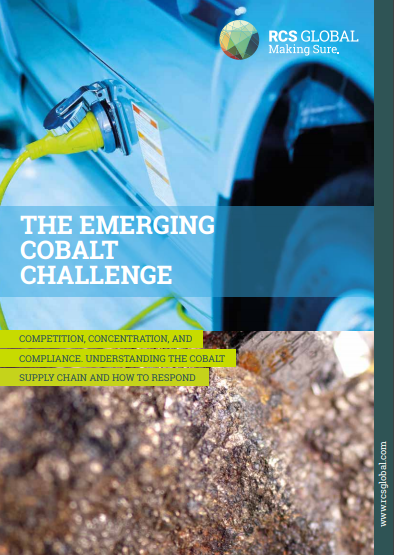The next few years will see worldwide consumption of cobalt rise significantly as nascent demand from the electric vehicle market comes on line. For both electric vehicle and tech manufacturers, cobalt forms an essential ingredient of the ubiquitous lithium-ion battery in cars, mobiles and computers. But there is a catch. While demand is rising, the worldwide supply and future reserves of cobalt are increasingly concentrated into one major market: the Democratic Republic of Congo (DRC). This market produces 60% of the world’s cobalt supply, but suffers from crumbling infrastructure and significant human rights challenges. These challenges are increasingly putting companies in the cobalt supply chain under scrutiny from campaigners, regulators and the media. It is within this context that companies must now secure their supply chains of cobalt-based, lithium-ion batteries. Simply put, the battery technology which is central to the imminent large-scale commercialization of the electric vehicle industry and the revolution in consumer technology is dependent on Congolese supply to meet demand.
This briefing paper, derived from RCS Global’s own recent research on Congolese cobalt supply chains, aims to:
• Provide insight on the risks associated with DRC production that represents approximately 60% of global cobalt output and half the world’s known reserves;
• Unpack the associated regulatory challenges linked to DRC cobalt;
• Provide a road map for companies seeking to mitigate their risk exposure.

